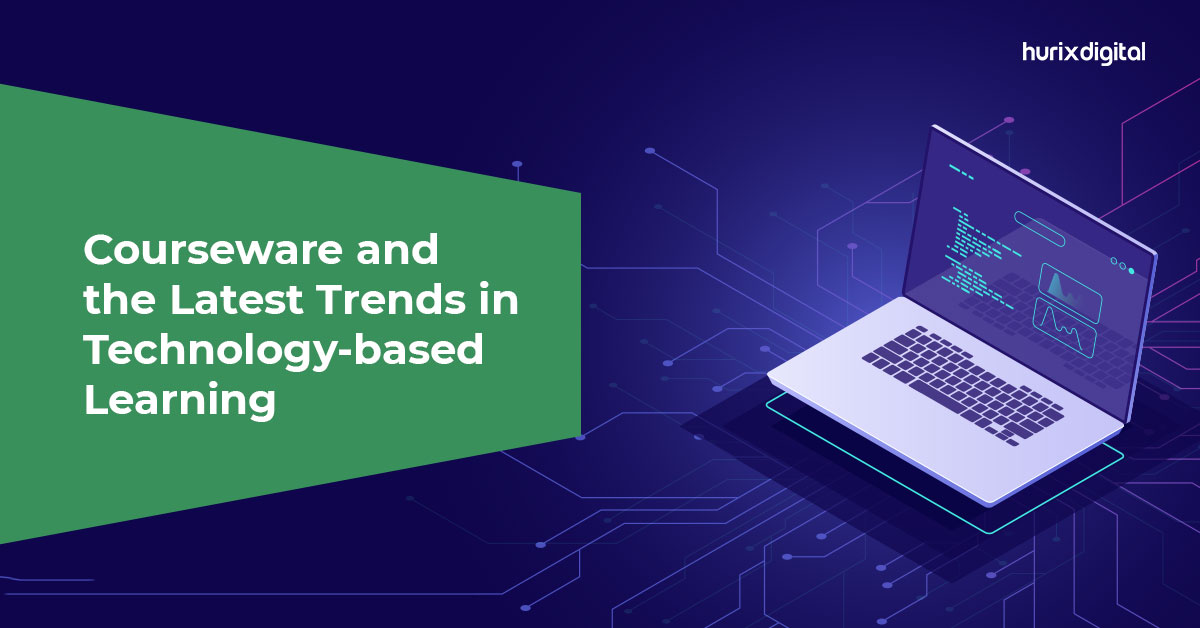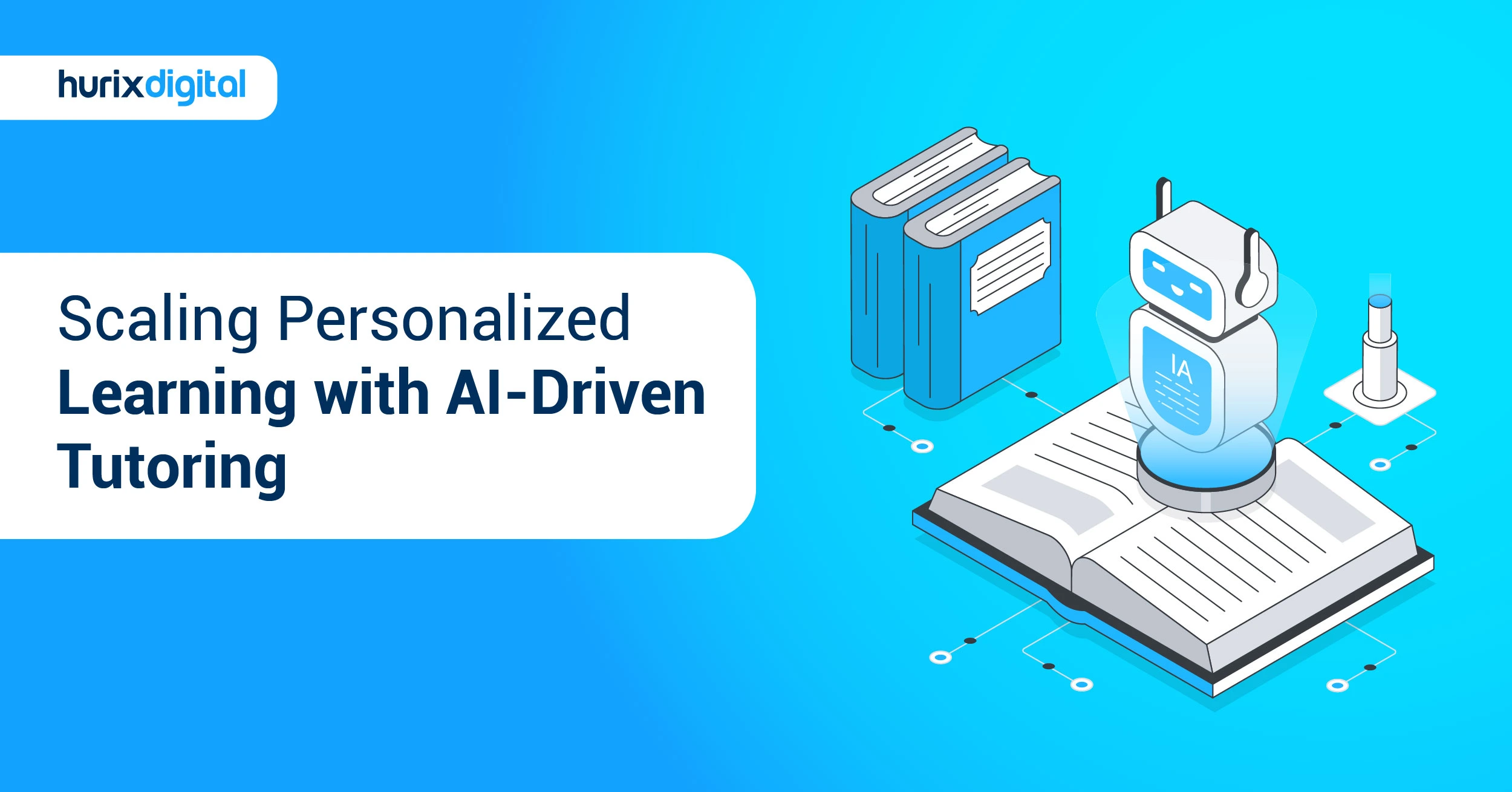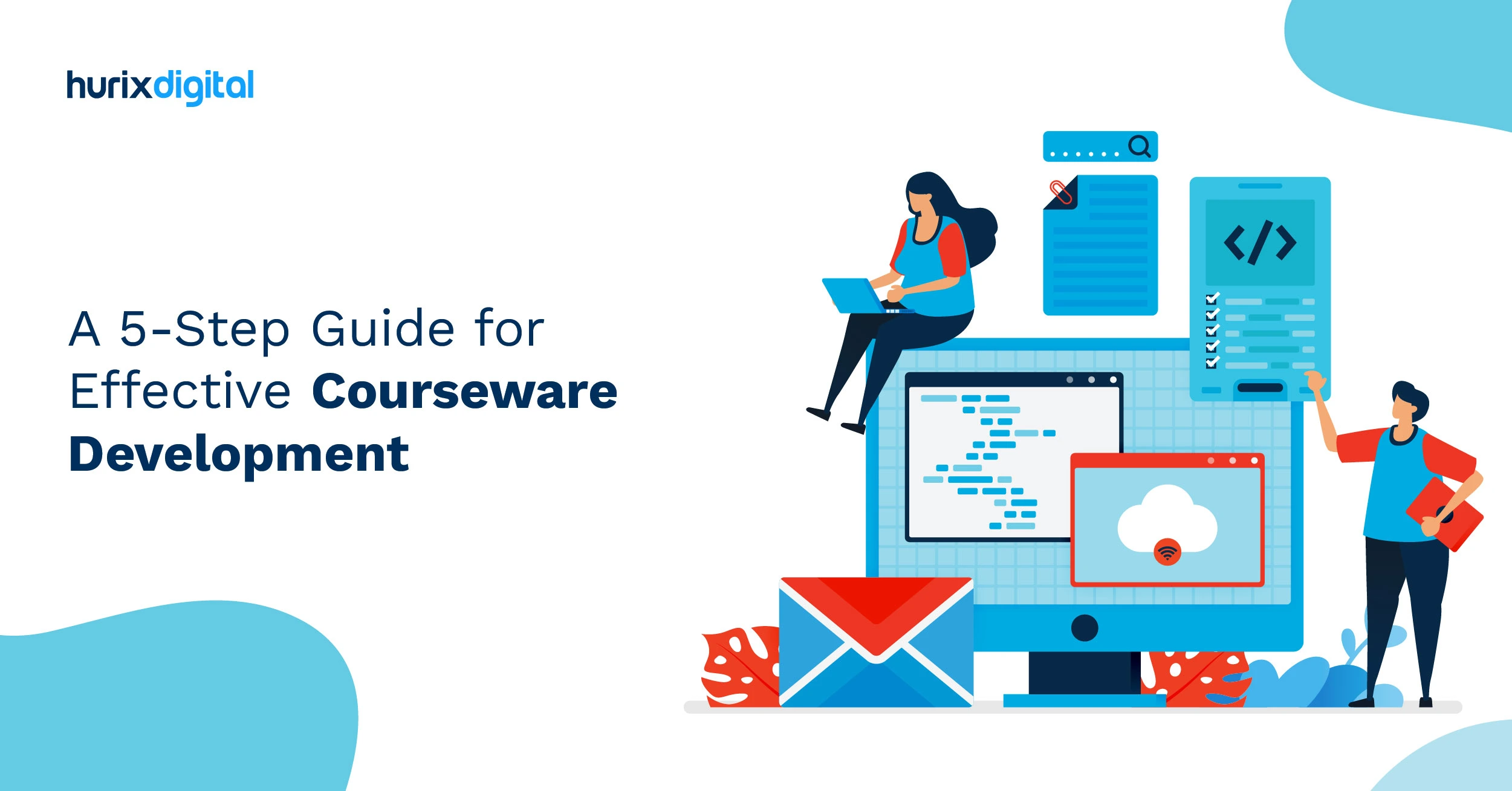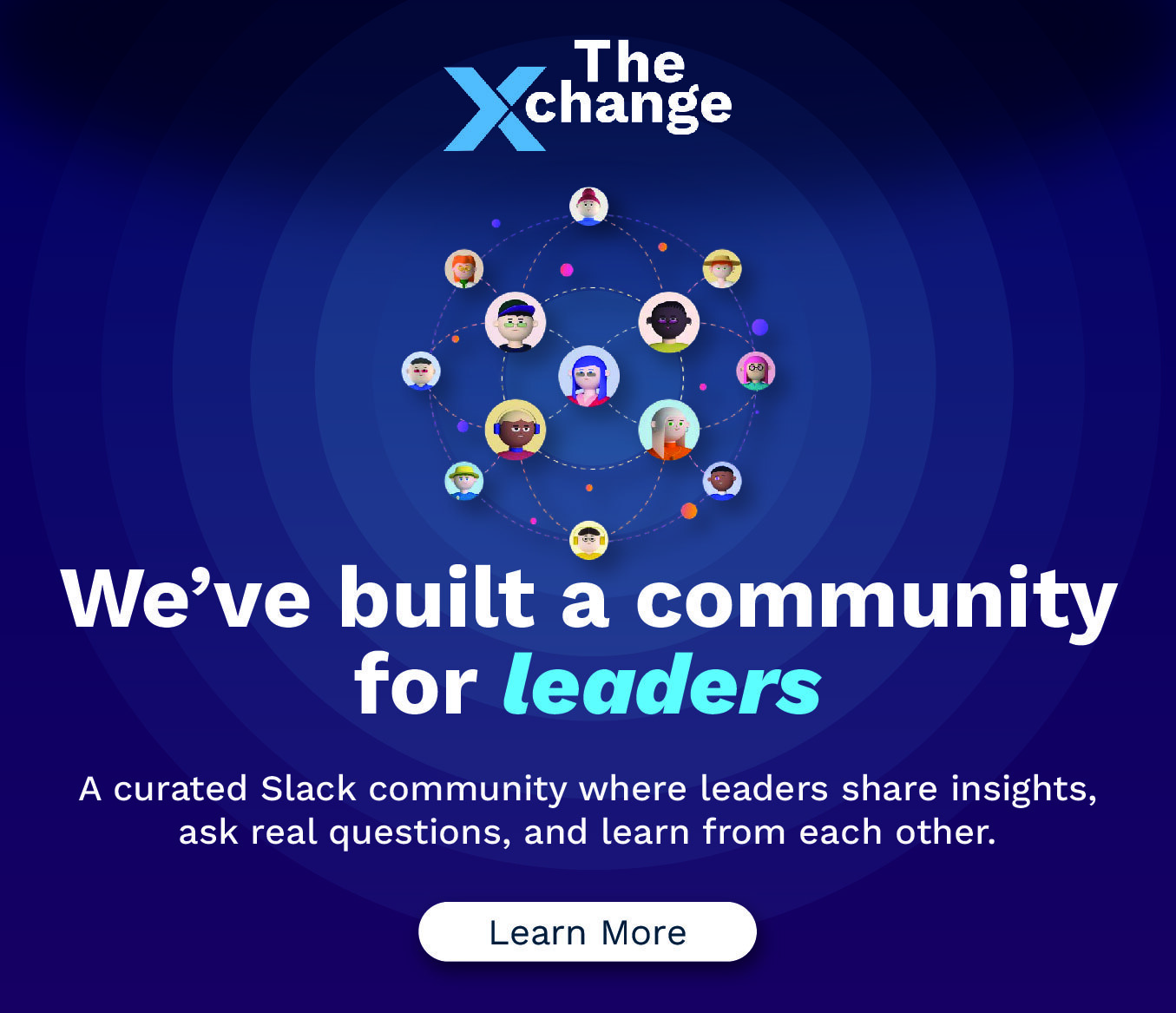
Latest Trends in Technology-based Learning: Courseware
Summarize with:
Anyone involved in technology-based courses knows how fast the industry is evolving. Traditional learning paradigms previously considered effective are no longer relevant in a world where online learning is increasingly becoming the norm.
According to Forbes, approximately 10 million students were enrolled in distance learning courses as of 2022 and around 64.8% of students are enrolled in exclusive online learning.
This figure is only expected to rise soon, and those involved in technology-based courses need to stay abreast of the latest trends in this field.
Table of Contents:
- What is Courseware?
- Types of Courseware
- Five Emerging Trends in Technology-led Courseware
- Is Customized Courseware Preferable?
- The Future of Courseware: AI, Analytics, and Beyond
- Wrapping Up
What is Courseware?
Courseware refers to all the content and instructional strategies that comprise an educational course or eLearning module. It is generally associated with technology-based materials and is considered synonymous with educational software in the modern context.
Originally, the term was used to refer to additional educational materials intended for the teacher or as extra tutorials for children. These materials were available on CDs to aid teachers in managing lectures or to help students understand the curriculum better.
In the modern context, courseware is typically a software program developed for learning and educational purposes. It can be accessed online and serves as supporting material for educational modules. Courseware can also be in the form of standalone courses.
It is especially relevant to online certified courses and eLearning programs.
Courseware can include the following:
- Video tutorials for instructors and students
- Instructions on how to conduct a course
- Notes for instructors
- Aids for computer-based learning
- Useful links and resources
- Tips to make online learning more interactive
- Quizzes and assignments
- Review questions
Also Read: How Workforce Learning & Development Can Steer the Oil and Gas Industry Toward a Sustainable Future?
Types of Courseware
Courseware consists of instructional content, purpose-built software, and assessment to personalize instruction. Based on how these elements are delivered, courseware can be divided into three categories.
1. All-In-One Courseware
This type of courseware comes as a complete package. It includes complete content, data and analytics, and assessment delivered through a single platform integrated with an LMS for course delivery.
2. Courseware via LMS
In this type, the complete course content, assessment, and data and analytics are hosted through an institution’s LMS. The courseware depends upon the LMS for customization, collaboration, and course administration.
3. Courseware as a Collection of Tools
This is an integrated experience wherein the content, assessment, and interactive tools are incorporated from different sources using the LMS for course administration.
Five Emerging Trends in Technology-led Courseware
Working in the digital courseware sector requires one to stay updated on the latest developments in the industry. Here are five emerging trends you should be aware of if your organization is involved in developing courseware and eLearning content.
1. Mobile Learning
Mobile learning is becoming increasingly popular due to its convenience. If courses can be accessed on mobiles, smartphones, and tablets, people can learn on the go with utmost ease.
While creating courseware, one has to keep mobile learning in mind and thus focus on concise content that is also aesthetically appealing. The multimedia content has to be optimized for easy upload and display across devices.
2. Micro-Learning
Breaking up the large course content into small, bite-size modules makes learning more learner-friendly. It also makes the process of knowledge transfer more convenient and efficient.
Reading summaries of lessons or watching short videos of 2-3 minutes takes the pressure off the learner’s mind and makes it easier for them to focus.
3. Gamification
Learning becomes more effective and engaging if education is imparted in a fun way. This is why gamification in education is so popular when it comes to developing courseware.
Gamification involves using game principles to make learning more engaging. It ensures better interactivity and boosts knowledge retention in learners. Including elements of competition, challenges, and prizes can make education more rewarding.
4. Video Content
Video content is a very significant part of courseware development. Videos add a personalized touch to the learning program. Short videos are the most engaging as they focus on just one topic at a time and help the learner visualize the concepts being taught.
Well-made videos lead to better learning experiences in a shorter period.
5. Customization Options
One popular trend in the education sector is customized learning. Customized courseware is more relevant for learners, as they get a personalized educational experience. This makes it easier to meet their specific requirements.
Customized courseware also supports the addition of a logo, a color scheme of choice, background images, and themes.
Is Customized Courseware Preferable?
When it comes to developing courseware, customization is the key to addressing the specific learning needs of the students. Here are some major benefits of using customized courseware.
1. Saves Time
Unlike generic courseware, customized courseware focuses on specific learning areas. It is targeted at achieving certain objectives and centered on your specific audience and their unique learning needs.
2. Alignment with Objectives
Customized courseware can readily align with your organization’s goals and objectives. It can reflect your business’s brand and values and link the learning outcomes with the business goals.
3. Easy Modification
Having customized courseware allows you to make modifications whenever you want. This might not be possible when using third-party courseware.
4. Participant Motivation
Customized courseware is developed keeping the participants’ needs in mind. Thus, the participants resonate with the courseware and are more likely to engage enthusiastically in the learning process.
5. Practicality
Customized courseware can be developed to support a high level of practical application. Courseware that includes group activities and real-life case studies is more effective.
The Future of Courseware: AI, Analytics, and Beyond
In the future, technology-driven course materials will change quickly because of new technologies like Artificial Intelligence (AI) and learning analytics.
These new tools are changing how course materials are made and distributed, making learning personal and improving education for ease and flexibility.
AI is becoming integral to digital courseware by automating tasks like grading, creating personalized learning paths, and providing personalized suggestions.
Here are some ways AI is making a difference:
- Adaptive Learning: AI-powered courseware adapts to each learner’s pace, offering additional resources when needed and simplifying complex topics for better comprehension.
- Automated Feedback: AI tools quickly assess assignments, quizzes, or tasks, providing instant feedback and allowing students to correct mistakes on the spot, enhancing learning efficiency.
- Chatbots and Virtual Tutors: AI-driven chatbots are available 24/7 to answer queries, guide learners, or even simulate one-on-one tutoring, bridging gaps when human support is unavailable.
Learning analytics plays a crucial role in monitoring student progress and improving course outcomes.
With real-time data collection and analysis, instructors can gain valuable insights into:
- Engagement Metrics: Track how learners interact with the courseware—what content engages them most and where they face challenges.
- Performance Evaluation: Determine patterns in performance to adapt course materials, ensuring that both high achievers and struggling students receive the support they require.
- Personalized Recommendations: Use data to suggest additional resources or study paths tailored to each student’s learning style and needs.
Also Read: Adapting Workforce L&D Programs to the Virtual and Hybrid Landscapes
Wrapping Up
In today’s digital courseware world, keeping up with the latest trends requires embracing new ideas and personalizing learning at each step. Developing course materials is now more than just sharing information—it’s about creating a learning experience that connects with students and adjusts to their needs.
Whether it’s learning on the phone, creating short lessons, or adding game elements, using data and tailoring content is crucial for creating effective eLearning programs for learners.
Planning to develop customized courseware and eLearning programs in technology-led industries? Hurix Digital can be your one-stop destination. Hurix Digital believes in harnessing the power of data to ensure dynamic, effective digital content creation and technology services to clients across industries in 25+ countries in 20+ languages.
Connect with our experts at Hurix Digital, and let us help you plan, design, and implement the right courseware for your organization.
Summarize with:

Vice President & SBU Head –
Delivery at Hurix Technology, based in Mumbai. With extensive experience leading delivery and technology teams, he excels at scaling operations, optimizing workflows, and ensuring top-tier service quality. Ravi drives cross-functional collaboration to deliver robust digital learning solutions and client satisfaction
 A Space for Thoughtful
A Space for Thoughtful 


